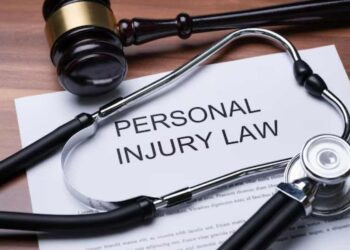Medicaid Estate Recovery is a federally mandated process that enables states to recover certain Medicaid costs from the estates of deceased beneficiaries. This policy primarily affects individuals who received long-term care services, but in some states, its reach extends to other benefits as well. Understanding the legal nuances of Medicaid Estate Recovery is critical for families looking to protect assets, preserve inheritance, and plan for long-term care needs.
Key Takeaways
- Medicaid Estate Recovery is required for long-term care benefits but can extend to other Medicaid services depending on the state.
- Exemptions exist for surviving spouses, minors, and disabled dependents, with additional waivers available for undue hardship cases.
- States differ in how they implement recovery, especially after the Affordable Care Act (ACA) expanded Medicaid eligibility.
- Asset protection strategies like irrevocable trusts and life estates can reduce exposure to recovery, but planning must align with Medicaid’s five-year look-back period.
- Professional legal advice is essential to tailor strategies and address state-specific regulations.
Understanding Medicaid Estate Recovery
Legal Foundation
Medicaid Estate Recovery became a national mandate with the Omnibus Budget Reconciliation Act of 1993. It requires states to recover costs for long-term care services, hospital stays, and prescription drugs for Medicaid recipients aged 55 and older. States also have discretion to extend recovery to other benefits, a provision that varies widely across the country.
The financial burden imposed by Medicaid Estate Recovery can be significant, impacting families’ ability to pass down assets to future generations.
Without careful planning, homes, savings, and other valuables could be liquidated to satisfy Medicaid claims. This underscores the importance of understanding the recovery process and implementing preventive measures.
Explaining Medicaid Estate Recovery
How It Works
When a Medicaid recipient passes away, their estate becomes liable for reimbursing the state for covered benefits.
Recovery typically targets assets included in the probate estate, such as homes and savings accounts. However, some states extend the recovery to non-probate assets, including those held in joint accounts or living trusts.
Medicaid Estate Recovery applies to:
- Individuals aged 55 and older: States must recover costs for long-term care and related services.
- Non-long-term care recipients: In states with expanded recovery policies, beneficiaries of other Medicaid services may also be subject to claims.
Types of Medicaid Benefits Subject to Recovery
The following benefits are always subject to recovery under federal law:
- Long-Term Care Services (LTCR): Includes nursing home care, in-home care, and community-based services.
- Hospital and Prescription Drug Services: Costs associated with medical treatment linked to long-term care.
Optional Recovery
States have the option to recover additional Medicaid costs, which may include:
- Routine medical services unrelated to long-term care.
- Preventative and outpatient care.
- Administrative fees or capitation charges, even if services were unused.
| Type of Service | Mandatory Recovery | Optional Recovery | Examples |
| Long-Term Care Services | Yes | No | Nursing facilities, home health services |
| Related Hospital Services | Yes | No | Emergency care, post-surgery hospitalization |
| Prescription Drug Costs | Yes (if LTCR-related) | State-dependent | Medication for chronic conditions |
| Routine Medical Services | No | Varies by state | Preventive care, doctor visits |
Exemptions and Protections
Certain individuals are automatically exempt from Medicaid Estate Recovery, offering families some protection:
- Surviving spouses: Recovery cannot proceed while the deceased beneficiary’s spouse is alive.
- Minor children: Children under 21 years old are protected.
- Disabled or blind dependents: Adult children with disabilities or blindness are shielded from recovery claims.
Hardship Waivers
States are required to provide waivers for undue hardship cases, such as:
- Primary residence dependency: When heirs rely on the home as their primary residence.
- Critical family assets: Farms or small businesses essential to the family’s livelihood.
Temporary Exemptions
Under specific conditions, estate recovery may be delayed or avoided:
- Intent to return home: If a Medicaid recipient has declared their intent to return home, supported by a sworn statement and medical evaluation, recovery may be deferred.
- Equity interest by family members: A sibling or child who has a financial stake in the home may also prevent lien enforcement.
Strategies to Protect Assets
Life Estates
A life estate divides property ownership between a life tenant (the Medicaid recipient) and remainder beneficiaries (heirs). This arrangement ensures that:
- The recipient retains the right to use the property during their lifetime.
- Ownership transfers automatically to heirs upon the recipient’s death, bypassing recovery.
Irrevocable Trusts
Placing assets into an irrevocable trust can shield them from estate recovery. Key considerations include:
- Loss of Control: Assets in the trust are no longer accessible to the Medicaid recipient.
- Five-Year Look-Back Period: Transfers to the trust must occur at least five years before Medicaid eligibility to avoid penalties.
Other Strategies
- Joint Ownership: Adding a co-owner to accounts or property can help avoid probate.
- Spousal Transfers: Assets transferred to a spouse are exempt from recovery.
- Timely Estate Planning: Early intervention is critical to minimize exposure to Medicaid claims.
Tim Jarvis, founder of Jarvis Law Office, emphasizes the importance of consulting a Medicaid attorney. “The best way to safeguard your family’s assets is to plan early and explore options like irrevocable trusts and life estates. These tools are invaluable when combined with professional guidance by an attorney.”
For more insights on trust-based planning, visit his detailed guide: Does putting your home in a trust protect it from Medicaid?.
Final Reflections
Medicaid Estate Recovery highlights the delicate balance between public benefit programs and personal financial planning.
While the policy aims to recover taxpayer funds, its implications for families can be profound. By taking proactive steps, such as establishing family trusts or life estates, individuals can protect their assets and ensure financial security for their loved ones after they die.
Partnering with a Medicaid attorney ensures compliance with state-specific regulations and maximizes the effectiveness of asset protection strategies.










